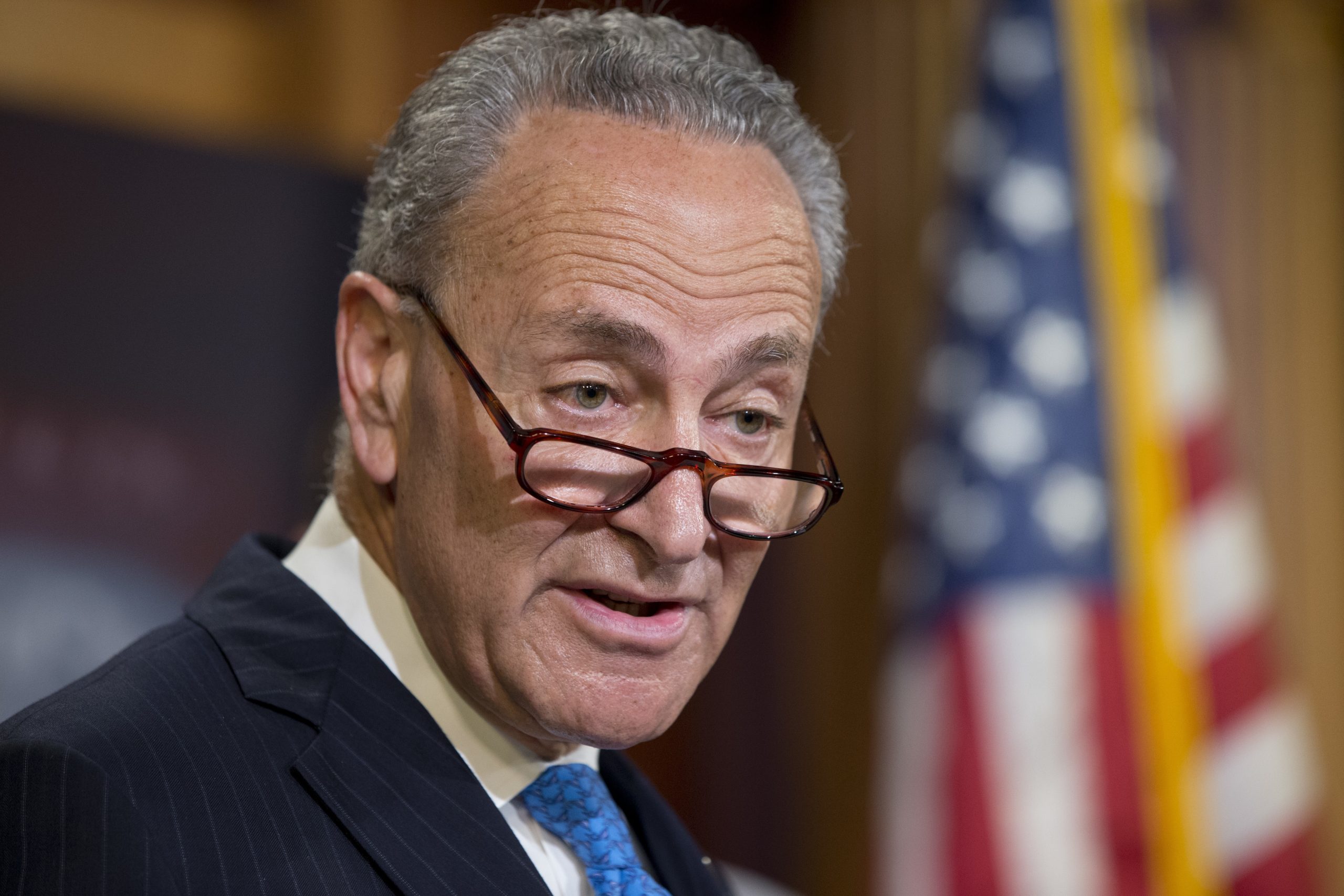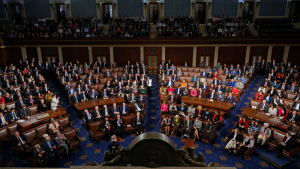Millions at Risk of Missed Benefits Amid Washington Budget Impasse
The U.S. Department of Agriculture (USDA) has warned that Supplemental Nutrition Assistance Program (SNAP) benefits — commonly known as food stamps — may not be issued on November 1, citing an ongoing budget standoff in the Senate that has left federal funding in limbo.
In a statement posted to its website, the USDA said, “At this time, there will be no benefits issued on November 1st. Senate Democrats have now voted 12 times to not fund the food stamp program. Bottom line, the well has run dry.”
The announcement adds fresh urgency to a government shutdown that began October 1, marking nearly a month without a federal spending agreement. The political deadlock has left multiple agencies without funding and put vital social programs, including SNAP, under immediate strain.
USDA: “The Well Has Run Dry”
The USDA statement accused Senate Democrats of blocking funding bills needed to keep the food assistance program operational. It stated that lawmakers must act swiftly to ensure that the nation’s most vulnerable families do not lose access to essential nutrition aid.
“We are approaching an inflection point,” the department’s post read. “They can continue to hold out for healthcare for illegal aliens and gender-related medical procedures, or they can reopen the government so mothers, babies, and the most vulnerable among us can receive critical nutrition assistance.”
While the department did not provide specific details about contingency plans, its public warning suggests that SNAP benefits for more than 42 million Americans could be interrupted unless Congress reaches a deal soon.
Shutdown Enters Fourth Week with No Clear End in Sight
The federal government has been shut down since October 1, following a breakdown in negotiations over a spending bill. According to Republican lawmakers, Senate Democrats have refused to approve a proposal that excludes new health care subsidies tied to immigration coverage.
Democrats argue that their funding demands include essential health services and reject what they call partisan attempts to strip federal programs of resources.
As the impasse drags on, the effects are being felt across the country — from unpaid federal employees to families dependent on government assistance programs.
Food Assistance at the Center of the Dispute
SNAP, which supports roughly one in eight Americans, provides monthly benefits to help low-income individuals and families purchase groceries. In 2024, the program served an average of 41.7 million people per month, with the federal government spending nearly $100 billion on food assistance nationwide.
The average recipient received about $187 per month in benefits. Many households rely on these payments to bridge food gaps, particularly during times of high inflation and wage stagnation.
If the USDA’s warning holds true, the lapse in funding could leave millions of families without access to basic food assistance, raising the risk of increased food insecurity across the nation.
White House Focuses on Military Pay as SNAP Funds Dwindle
While Congress remains divided, President Donald Trump has issued an executive order directing the Department of Defense to use available funds to continue paying active-duty military personnel during the shutdown.
“The president is committed to ensuring our military service members are paid,” a White House spokesperson said. “But we need Congress to act to restore funding across the government — including programs like SNAP.”
Reports indicate that billionaire Timothy Mellon, a longtime Republican donor, recently contributed $130 million to support Trump’s policy initiatives during the shutdown. The donation, reportedly made through a third-party political committee, has drawn attention amid growing public concern about the duration of the impasse.
Lawmakers Trade Blame Over Food Stamp Crisis
House Speaker Mike Johnson directly blamed Senate Democrats for prolonging the shutdown and causing hardship for working Americans.
“They’ve tried to say this is a fight about health care or other priorities,” Johnson said in a press briefing. “But it’s very simple — they put their demands in writing, and they haven’t changed. They want to give $200 billion in health benefits to noncitizens and billions in wasteful programs abroad. We cannot and will not do that.”
Johnson added that the consequences of inaction are being felt daily:
“It’s almost been a full month since Democrats shut down the government. 1.4 million federal workers have already missed a paycheck, and now families relying on SNAP are facing food insecurity. The pain is real, and it gets worse every day.”
Democratic leaders, in turn, argue that Republicans are using essential programs as leverage, accusing them of prioritizing political messaging over Americans’ wellbeing.
Growing Concern Among States and Food Banks
State agencies responsible for administering SNAP benefits have expressed alarm over the USDA’s announcement. Without new funding, they warn that benefits scheduled for November could be suspended entirely, forcing families to seek help from food banks already strained by high demand.
Nonprofit organizations have begun mobilizing to prepare for a potential gap in federal assistance. A spokesperson for Feeding America said that local food pantries are “bracing for a significant surge in need” if federal benefits are delayed.
Economic analysts warn that the halt in SNAP funding could have ripple effects across local economies. Since many recipients spend benefits immediately on groceries, a pause in payments could impact small businesses, grocery stores, and food suppliers nationwide.
Uncertain Path Forward
The Senate has yet to announce a new vote on a funding proposal, though negotiators from both parties continue to meet behind closed doors. The USDA has not confirmed whether emergency reserves could be used to issue partial benefits if the shutdown continues into November.
For millions of Americans, that uncertainty is proving difficult to bear. “We don’t know what we’ll do if the payments stop,” said a single mother from Ohio who relies on SNAP to feed her three children. “We’re already cutting back as it is.”
Until Congress acts, the USDA’s warning stands — and the nation’s largest food assistance program remains on the brink of disruption.

James Jenkins is a celebrated Pulitzer Prize-winning author whose work has reshaped the way readers think about social justice and human rights in America. Raised in Atlanta, Georgia, James grew up in a community that instilled in him both resilience and a strong sense of responsibility toward others. After studying political science and creative writing at Howard University, he worked as a journalist covering civil rights issues before dedicating himself fully to fiction. His novels are known for their sharp, empathetic portraits of marginalized communities and for weaving personal stories with broader political realities. Jenkins’s breakout novel, Shadows of Freedom, won national acclaim for its unflinching look at systemic inequality, while his more recent works explore themes of identity, resilience, and the fight for dignity in the face of oppression. Beyond his novels, James is an active public speaker, lecturing at universities and participating in nonprofit initiatives that support literacy and community empowerment. He believes that storytelling is a way to preserve history and inspire change. When not writing, James enjoys jazz music, mentoring young writers, and traveling with his family to explore cultures and stories around the world.









